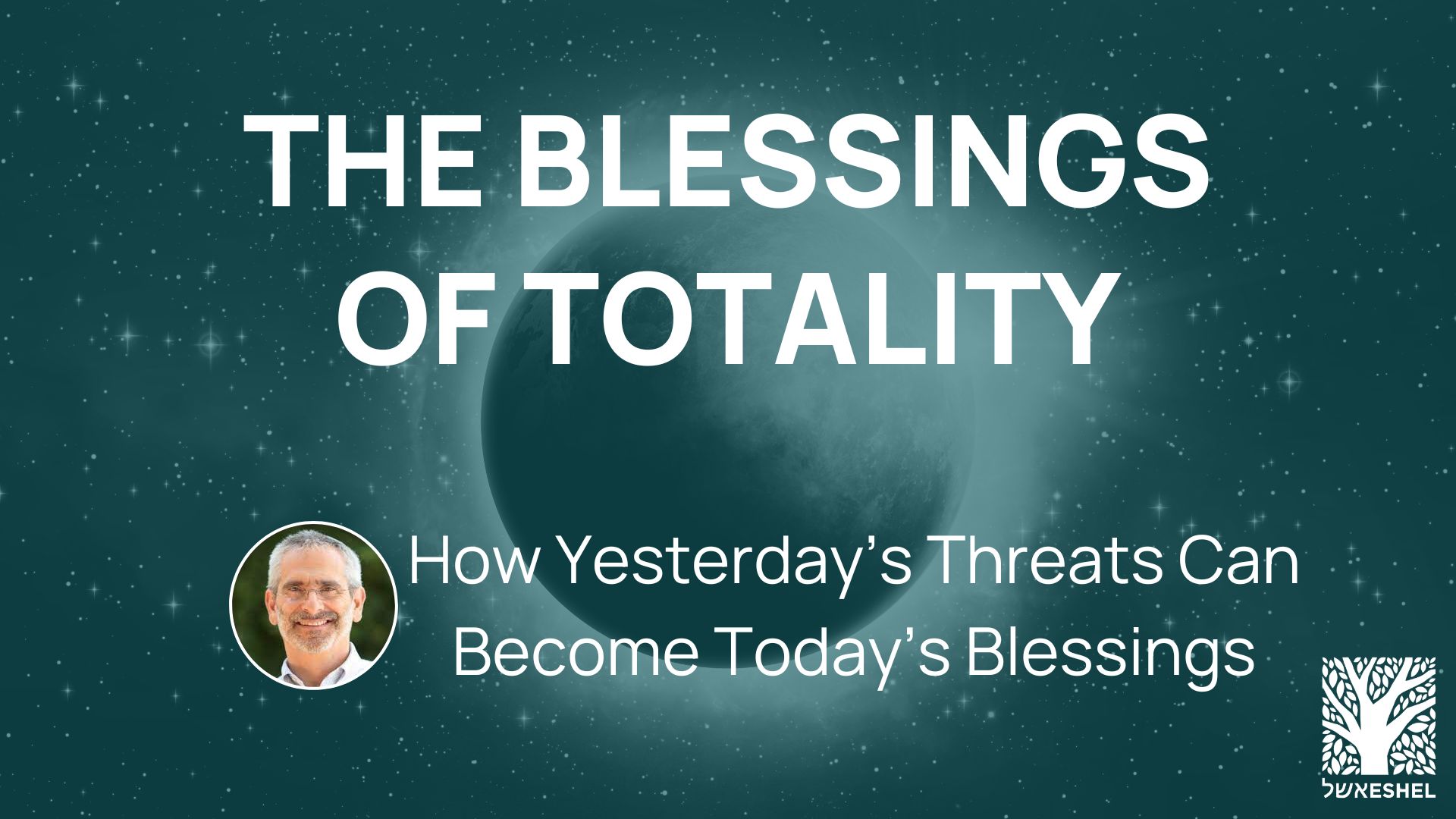
At 3:27 on Monday, April 8th in Crystal Lake, Vermont the moon totally covered the sun for three minutes. The recent total eclipse was among the most stunning natural experiences of my life. I’ve seen Niagara up close and I rafted for a week on the Colorado River in the Grand Canyon. Both were wildly gorgeous, at moments overwhelmingly beautiful and terrifying – the very definition of awesome. But something about the total solar eclipse last week was transcendent.
It was not thunderous like Niagara. It did not fill up my senses over many days like the Grand Canyon. And yet it brought me to tears when, for three minutes, the earth fell into darkness in the middle of the day and a ring of gaseous fire (not the sun) surrounded a perfect round black disc where the sun had been.
I wondered, what is it that gives this short celestial shadow so much emotional power? Why was I rendered speechless by this congruence of shape, distance and time?
There was a sense of revelation in the moment. When the sun was momentarily covered, it paradoxically felt like the heavens were being uncovered, like an intimate door was opened and a secret was being shared. And while it riveted my attention to the sky, in another way it grounded me.
Our daily lives are organized in great measure by the regularity of the movements of the sun and the moon. This experience of constancy has a way of demystifying the marvel of our planetary existence. A total eclipse plants our feet upon this spinning globe by revealing the heavens in their enormity as our neighborhood. It was as if the sun and the moon in the midst of their celestial embrace turned to us to say, “Yes, indeed, this miraculous spectacle is your home.”
From a social perspective, there was something about watching this spectacle together with other people that heightened the experience. I was with my husband and daughter and a small group of friends. We were on a hill above the lake immediately surrounded by a dozen strangers. Many more people were down the hill closer to Crystal Lake. While we could see only a few hundred people, we all knew that there were throngs, perhaps millions of human beings, in the path of totality who were looking up to the heavens with us for a few transcendent moments. There were gasps on the hill when totality began. The thrill of this very short-lived daytime-nightfall seemed to connect us all. I really don’t know what others were feeling, but I know that I was not alone in being struck by an awesome sense of human solidarity. It was strangely joyous. I felt both terribly small and graciously blessed. Life and consciousness, at that moment, felt like an immense shared gift of grace.
All I wanted to do when it was over was hug people. Words were just inadequate.
Among the most notable experiences was that after the totality was over, it took only a tiny fraction of the sun peeking out beyond the shadow of the moon to light up earth. Night became day again. I was shocked to realize how the smallest percent of the sun is enough to light up the earth. The light seemed thin, but the sun, even at 1%, was shining too bright to look at.
One of the questions we all entertained in advance was so very Jewish. Is there a bracha, a blessing, for a total eclipse? Indeed, the rabbis of the Talmud do not mention such a blessing and likely so because it was deemed a bad omen. Ancients no doubt found the swallowing up of the sun to be no cause for joy. It may also be that the sages of the Talmud did not want people to look directly at the sun for a ritual moment, knowing that doing so could damage their eyes.
However, given contemporary astronomy and solar viewing lenses, it seems obvious that we should recite a bracha. We know now that an eclipse is not a threatening omen, but something stunningly beautiful that is built into the cosmos. It makes good sense to respond in a new way to something that was once feared as a violation of nature and that we now experience as a magnificent concurrence of God’s marvelous heavenly handiwork.
We chose the blessing that is recited when experiencing moments of nature’s awesome power, for example, like a lightning bolt. Blessed are you Lord who performs the work of creation. When science helps us to grasp reality anew and understanding replaces fear, then new religious possibilities are born. In this way yesterday’s threats can become today’s blessings.
This truth is one that strikes home very powerfully for LGBTQ+ people. As the account of human sexuality and gender have become better understood as part of nature’s variability, what was once deemed to be dangerous and corrosive is shown to be a beautiful and unique blessing of God’s manifold creation.
If there are other ways you celebrated the eclipse and gave it religious meaning or some ritual expression, please pass it along. Once I came back home to Boston I began to look for other ways to mark the experience, in case I am lucky enough to witness another totality. This past shabbat it dawned on me that a psalm we recite every Shabbat and holiday, Psalm 19, would be a good preparation. Here are the first few verses:
הַשָּׁמַיִם מְסַפְּרִים כְּבוֹד־אֵל
וּמַעֲשֵׂה יָדָיו מַגִּיד הָרָקִיעַ׃
יוֹם לְיוֹם יַבִּיעַ אֹמֶר
וְלַיְלָה לְּלַיְלָה יְחַוֶּה־דָּעַת׃
אֵין־אֹמֶר וְאֵין דְּבָרִים
בְּלִי נִשְׁמָע קוֹלָם׃
The heavens declare the glory of God,
the sky proclaims the work of his hands.
Day to day makes utterance,
night to night conveys wisdom.
There is no speech, no words
and yet without them, their voices are heard.

